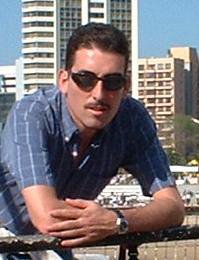Remembering Spain´s failed complot

Twenty-five years ago, Lt. Col. Antonio Tejero led a band of fellow Civil Guard officers inside the Chamber of Deputies in Madrid, pulled out a gun and pumped a round of shots into the air. Tejero announced that he was leading a golpe de estado or coup and urged deputies not to interfere or they would be shot.
The complot had been organized by a group of military men who were disgruntled with the way the six-year-old constitutional government was running the country. These right-wing officers were keepers of dictator Francisco Franco´s memory. Among the issues that put them on edge were the continuous terrorist attacks by the Basque separatist organization ETA, proposals to give greater autonomy to the Basque and Catalonia regions, and the legalization of the communist and other leftist parties.
Tejero and a group of his men stormed the Chamber at around 6:30 p.m. Feb. 23, 1981 as deputies were voting to elect Leopoldo Calvo Sotelo as the new prime minister. While most of the deputies fell to the floor when a guardsman pumped a submachine gun into the air, acting Prime Minister Adolfo Suárez and Santiago Carrillo, leader of the Communist Party, didn´t budge. In Valencia, Gen. Jaime Milans del Bosch rose up, put tanks on the streets, and declared a state of emergency. But he failed to convince other generals to rebel.
Monitoring the situation, King Juan Carlos called in his closest advisors who assured him that the incident was an isolated one and had no popular support. Dressed in a military uniform, the king went on live television to order the armed forces to respect the constitutional order and assure Spaniards that democracy would prevail. Milans was arrested that evening and Tejero gave up the following day. Thousands of Spaniards took to the street in support of democracy and the king.
The only leader of the failed coup who still survives, Tejero, 73, now resides quietly in a beachfront apartment in his native Málaga. He was released from prison in 1993. To this day he declines interviews and shuns publicity. However last month, he wrote a letter to the Melilla Hoy newspaper warning that the current events in Spain -- especially the movements to grant more power to Spain´s autonomous regions -- are not dissimilar to what brought on the 1981 attempted coup in the first place.


0 Comments:
Post a Comment
<< Home